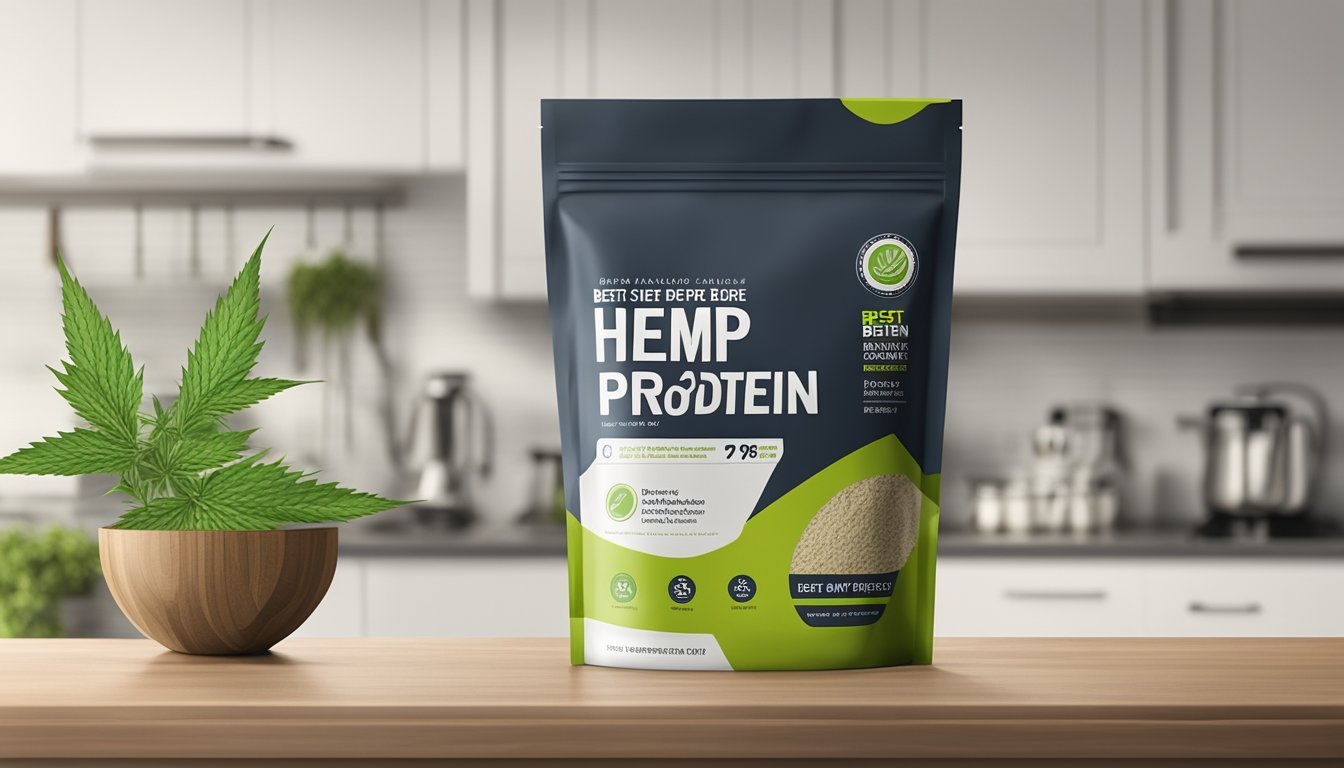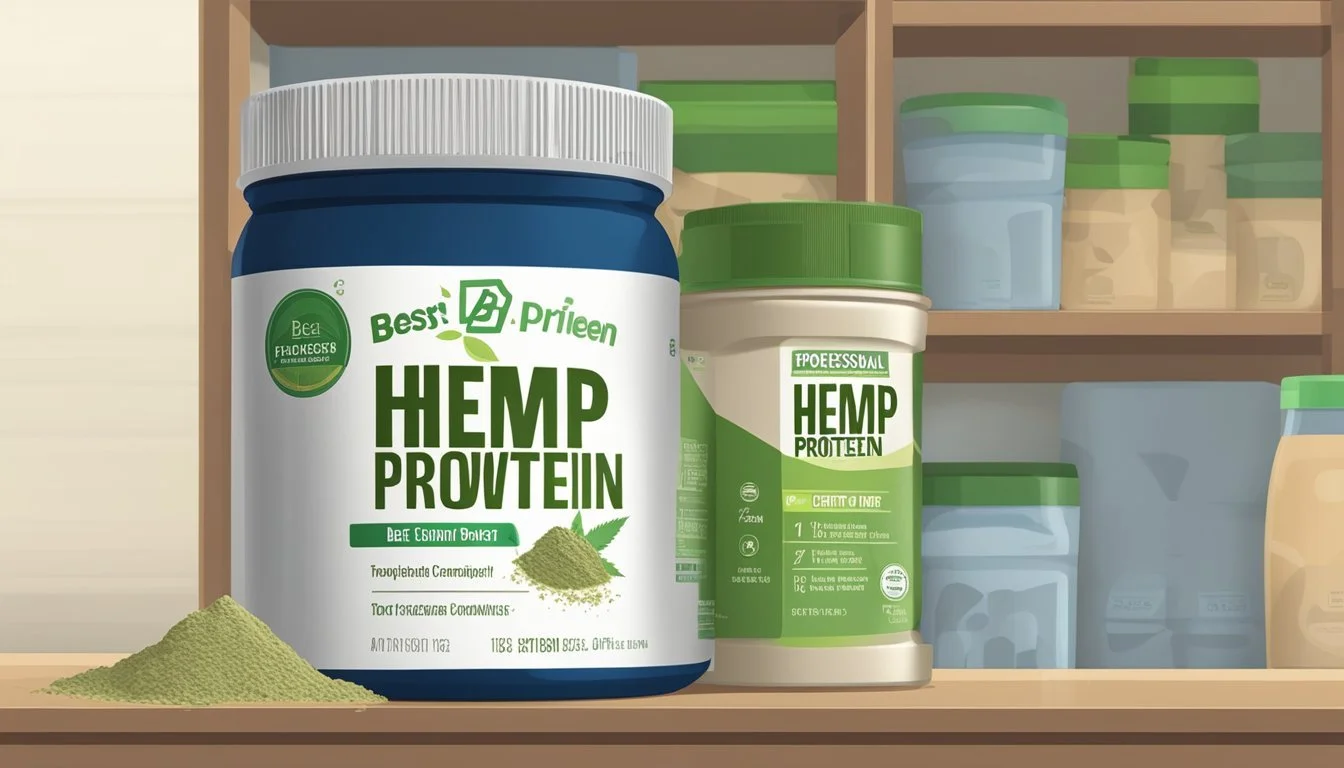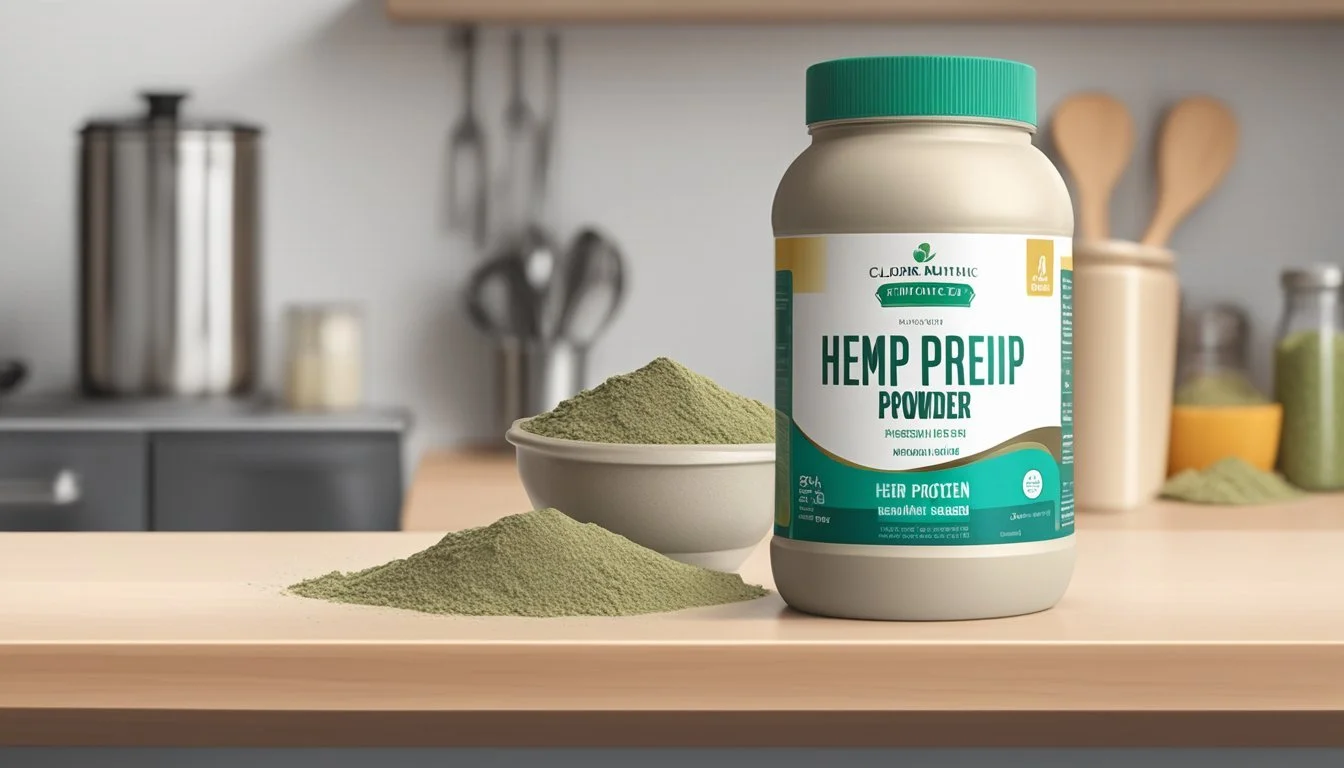How Long Does Hemp Protein Powder Last?
Understanding Shelf Life and Storage
Hemp protein powder (how long does hemp protein powder last?) is a nutrition supplement that has gained popularity for its plant-based origin and comprehensive amino acid profile. As with all protein powders, consumers often wonder about its shelf life and how long they can expect it to last before it loses its quality or becomes unsafe to consume. Typically, hemp protein can retain its freshness and nutritional value for 1-2 years when stored correctly, in a cool and dry place. The exact duration can vary depending on the specific brand and the presence of preservatives that may extend the product's shelf life.
Understanding the longevity of hemp protein powder is crucial for those incorporating this supplement into their diet. An expiration date is generally provided by manufacturers and is often a reliable indicator of its expected shelf life. However, this date is not an absolute indicator of spoilage, but rather a suggested timeframe for the best quality. If the powder is stored under optimal conditions and the packaging remains unopened, it can last up to or even slightly beyond this date without significant degradation of its nutritional value.
It is important to consider that protein powders, including hemp, are not immune to spoilage and can become unsafe or less effective if exposed to adverse conditions. Signs that hemp protein powder might have gone bad include a rancid smell, discoloration, or changes in texture. Additionally, consumption of spoiled hemp protein powder can be potentially harmful, so it is essential to inspect the product thoroughly before use and to adhere to recommended storage practices to maximize its shelf life.
Understanding Hemp Protein Powder
Hemp protein powder derives from ground hemp seeds (how long do hemp seeds last?), offering a plant-based alternative to other protein supplements.
Composition of Hemp Protein Powder
Hemp protein powder is notable for its significant protein content, which is often plant-based and suitable for vegan diets. It also contains a commendable amount of iron and magnesium — minerals crucial for a variety of bodily functions. The powder's rich fiber profile includes both soluble and insoluble fiber, promoting digestive health. Uniquely, hemp protein provides all nine essential amino acids, making it a complete protein, a rare feature in the plant world. Additionally, it's endowed with essential fatty acids and a spectrum of other nutrients that contribute to overall wellbeing.
Health Benefits of Hemp Protein
Consumers prize hemp protein powder for its health benefits. The inclusion of essential amino acids contributes to muscle repair and growth, while its plant-based origins make it a popular choice among individuals pursuing a vegan or vegetarian lifestyle. The fatty acids, such as omega-3 and omega-6, are linked to heart health, potentially aiding in the management of blood pressure and cholesterol levels. The presence of dietary fiber in hemp protein can also support the regulation of blood sugar and offer benefits for bone health, making this protein powder much more than just a muscle-building supplement.
Determining the Shelf Life
The shelf life of hemp protein powder is influenced by various factors, including expiration dates and storage conditions. Understanding these aspects can help consumers ensure they are using a fresh and effective product.
Expiration Date and Freshness Indicators
The expiration date on a hemp protein powder package serves as the manufacturer's best estimate for the product's peak quality. Generally, one can expect hemp protein powder to maintain its freshness for 1 to 2 years from the date of production. Beyond this point, the quality and nutritional value may begin to decline. Consumers can also assess freshness through sensory indicators such as changes in smell, texture, or color. A sour or off smell, clumping due to moisture, or discoloration can all signify that the protein powder is past its prime.
Factors Affecting Shelf Life
Hemp protein powder's longevity is contingent upon several key storage conditions:
Temperature: It should be stored in a cool, dry place.
Moisture: Preventing exposure to moisture is crucial, as it can lead to spoilage.
Light: A dark container or storage space helps prevent degradation.
Improper storage conditions can accelerate the expiration process, potentially shortening the product's usable life span. Consumers are advised to follow storage guidelines closely to maximize the shelf life of their hemp protein powder.
Storage Conditions and Preservation
The longevity of hemp protein powder is closely linked to the way it is stored. Proper storage conditions significantly extend its shelf life, protecting it from factors that can lead to degradation.
Optimal Storage Techniques
To maximize the shelf life of hemp protein powder, individuals should store it in a cool, dry place such as a pantry or cupboard away from heat sources. Moisture and heat are the primary enemies of protein powder, as they foster an environment that promotes bacterial growth and oxidation. Containers should be airtight to avoid exposure to air, which can also lead to oxidation of the product. Ideally, one should aim to maintain a consistent temperature to prevent the powder from degrading due to temperature fluctuations.
Signs of Protein Powder Degradation
In recognising the signs of degradation, one should look for changes in:
Color: Any discoloration can indicate spoilage.
Smell: An off or sour smell is a clear sign that the protein powder may no longer be good.
Texture: Clumping or changes in texture could suggest moisture has entered the container.
Taste: Although it might not be advisable to taste a suspect powder, a change in taste can confirm that the powder has gone bad.
By observing these indicators and applying optimal storage techniques, consumers can ensure their hemp protein powder remains fresh and effective for as long as possible.
Quality and Safety Considerations
When assessing the quality and safety of hemp protein powder, one should pay close attention to the product's storage, potential for contamination, and changes in sensory attributes.
Preventing Contamination and Spoilage
Maintaining the integrity of hemp protein powder involves protecting it from contamination that could lead to spoilage. The primary factors contributing to contamination and spoilage include exposure to moisture, heat, and improper sealing. To prevent this, it is critical to:
Store the powder in a cool, dry place away from direct sunlight.
Seal the container tightly after each use to prevent the ingress of moisture and air, which can introduce microbes.
Use clean utensils to handle the powder, avoiding the introduction of contaminants.
How to Perform a Taste Test
A taste test can be a good indicator of whether hemp protein powder is still suitable for consumption. Before performing a taste test, one should check for visual signs of spoilage such as mold or an off-putting smell. If the powder passes the visual and olfactory inspections, a small amount can be tasted to assess if there is an unexpected change in flavor. To conduct a taste test effectively, one should:
Inspect the powder for any changes in texture, such as lumpiness.
Smell the powder for any off or rancid odors indicating spoilage.
Taste a small amount for any unusual or degraded taste profiles.
If the texture is off, the smell is unpleasant, or the taste has degraded, it is best to err on the side of safety and discard the hemp protein powder.
Nutritional Impact and Comparisons
In evaluating the value of hemp protein powder, it's useful to consider both its nutritional profile and how it stacks up against other popular protein powders.
Hemp Versus Other Protein Powders
Hemp protein powder is often compared to other plant-based proteins such as pea, soy, and rice proteins. While they are all vegan-friendly options, their nutritional contents differ. For example, soy protein is known to be a complete protein, offering all nine essential amino acids that the body cannot produce, but it may also contain phytoestrogens. Hemp protein also provides all essential amino acids, yet it is relatively lower in the amino acid lysine compared to soy.
Nutrition Comparison per 30g Serving:
Hemp Protein: 15g protein, rich in fiber
Pea Protein: 24g protein, lower in fiber
Soy Protein: 22g protein, contains all essential amino acids
Whey Protein: 25g protein, contains dairy
Casein Protein: 24g protein, slow-digesting, dairy-based
Hemp is distinct from whey and casein protein – both derived from milk – and it is a sustainable choice for those looking for an eco-friendlier option or who have dietary restrictions that exclude dairy.
Enhancing Protein Intake with Hemp
Integrating hemp protein powder into one's diet can significantly enhance protein intake, especially for vegans or individuals with dietary restrictions. Its plant-based origin means it's less processed than some animal-based proteins, potentially offering a purer protein addition to a diet. Hemp is also high in fiber, which can aid digestion, and is rich in minerals like magnesium and iron.
To maximize the benefits of hemp protein, it may be combined with other sources to ensure a balanced amino acid profile is achieved, particularly for those active individuals striving for muscle repair and growth. Incorporating a diversity of protein sources is key for obtaining a spectrum of nutrients necessary for overall health.
Hemp Protein in Dietary Practices
Hemp protein powder is embraced for its high nutritional value, making it a prominent choice for those adhering to vegan and vegetarian dietary practices. It serves as a complete protein source, containing all nine essential amino acids, and is free from common allergens.
Incorporating Hemp Protein into Vegan Diets
In vegan diets, obtaining sufficient protein that encompasses all essential amino acids can be challenging. Hemp protein powder offers a plant-based solution. Vegans can integrate hemp protein into their meals using the following methods:
Smoothies: Adding a scoop of hemp protein to a fruit or vegetable smoothie.
Baking: Incorporating hemp protein into bread, muffins, or pancake recipes for a protein boost.
Meals: Sprinkle on salads, soups, or pasta dishes as a nutritional enhancer.
This flexibility ensures that vegans can consume a balanced diet rich in essential nutrients.
Hemp Protein for Vegetarians and Allergen Concerns
While vegetarians may have a wider variety of protein sources, hemp protein is beneficial for those with sensitivities or allergies to dairy, soy, gluten, or nuts. Hemp protein provides:
Nutritional Value: A rich source of protein, fiber, and essential minerals without the allergens common in other protein powders.
Protein Quality: High-quality protein that supports muscle maintenance and overall health in a vegetarian diet.
Vegetarians seeking alternative protein sources find hemp protein to be a safe and valuable addition to their diet, honoring both their nutritional needs and allergen restrictions.
Culinary Uses of Hemp Protein Powder
Hemp protein powder offers versatility in the kitchen. It's known for its nutty taste and can enhance both the nutrient profile and flavor of various foods and beverages.
Adding Hemp Protein to Meals and Drinks
One can easily integrate hemp protein powder into their diet by incorporating it into meals and drinks. Its naturally mild, nutty flavor pairs well without overpowering dishes. Below are a few specific ways to use hemp protein powder:
Smoothies and Shakes: One of the most popular uses is adding hemp protein to smoothies and shakes for a nutrient boost. It blends seamlessly, adding a creaminess and thickness to the drink.
Meal Replacement: For those seeking a plant-based protein source, hemp protein serves as an excellent meal replacement when added to a balanced combination of fruits, vegetables, and healthy fats.
Culinary Uses: Beyond drinks, one can use hemp protein powder in:
Baked goods like bread, muffins, and pancakes
Breakfast items such as oatmeal or yogurt
Homemade protein bars or energy balls
By sprinkling hemp protein over salads or mixing it into soups, one can also increase the protein content of their meals subtly.
Taste Enhancement: Hemp seeds, the source of hemp protein powder, add a desirable nutty flavor to dishes without being overpowering, making it an ideal complement to various recipes.
Economic and Environmental Factors
The longevity of hemp protein powder is not only a matter of product quality but also intersects significantly with economic and environmental considerations, particularly when it comes to bulk purchasing and the sustainability of hemp cultivation.
Cost Efficiency of Bulk Purchasing
Bulk purchasing of hemp protein powder can be cost-effective for both the consumer and the supplier. Buying in larger quantities often reduces the cost per unit due to efficiencies in manufacturing and logistics. However, the shelf life of hemp protein powder must be taken into account to prevent waste and ensure the powder is consumed before its potency diminishes.
Cost per Unit: When purchasing in bulk, the price per gram of hemp protein can decrease, providing better value for money.
Storage Considerations: Larger quantities require adequate storage facilities to maintain product quality until expiration.
Sustainability of Hemp Cultivation
The cultivation of the hemp plant inherently carries environmental benefits, as hemp can be grown sustainably. Unlike some conventional crops, hemp requires little in the way of pesticides and herbicides due to its hardy nature. It's also known for having a positive effect on soil health and for its ability to grow in a variety of climates, making it an environmentally responsible choice.
Environmental Impact: Hemp farming typically involves lower levels of agricultural chemicals compared to traditional crops.
Manufacturing Footprint: The processing of hemp into protein powder should also be considered, with methods that minimize energy usage and waste preferred for a lower environmental impact.
In examining the economic and environmental factors relating to the shelf life of hemp protein powder, one can appreciate the balance required between cost savings through bulk purchases and the sustainable practices of hemp cultivation that contribute positively to the environment.
Legal and Social Considerations
When discussing hemp protein powder, it is essential to understand the implications of THC content and its legal status across jurisdictions, as this influences both the availability and the social perception of hemp-based products.
THC Content and Legal Status
Hemp protein powder is derived from the seeds of the Cannabis sativa plant. Tetrahydrocannabinol (THC), the principal psychoactive constituent of marijuana, is present in trace amounts in hemp seeds. Due to the negligible quantity of THC, hemp products are legal in many countries, provided they do not exceed a certain THC threshold.
For instance, in the United States, the legal limit for THC in hemp products is 0.3 percent. Products meeting this criterion are not considered to be marijuana and are therefore legally marketed. This distinction is crucial as an assurance to consumers that hemp protein powders will not have psychoactive effects and complies with the relevant regulatory frameworks.
Additionally, consumer attitudes towards hemp protein powder are generally positive, viewing it as a health-focused product, yet awareness of its legality can vary. This occasionally leads to misconceptions as some consumers might associate hemp with illegal marijuana products. Education and clear labeling regarding THC content and legality are vital in navigating these social and legal considerations.











